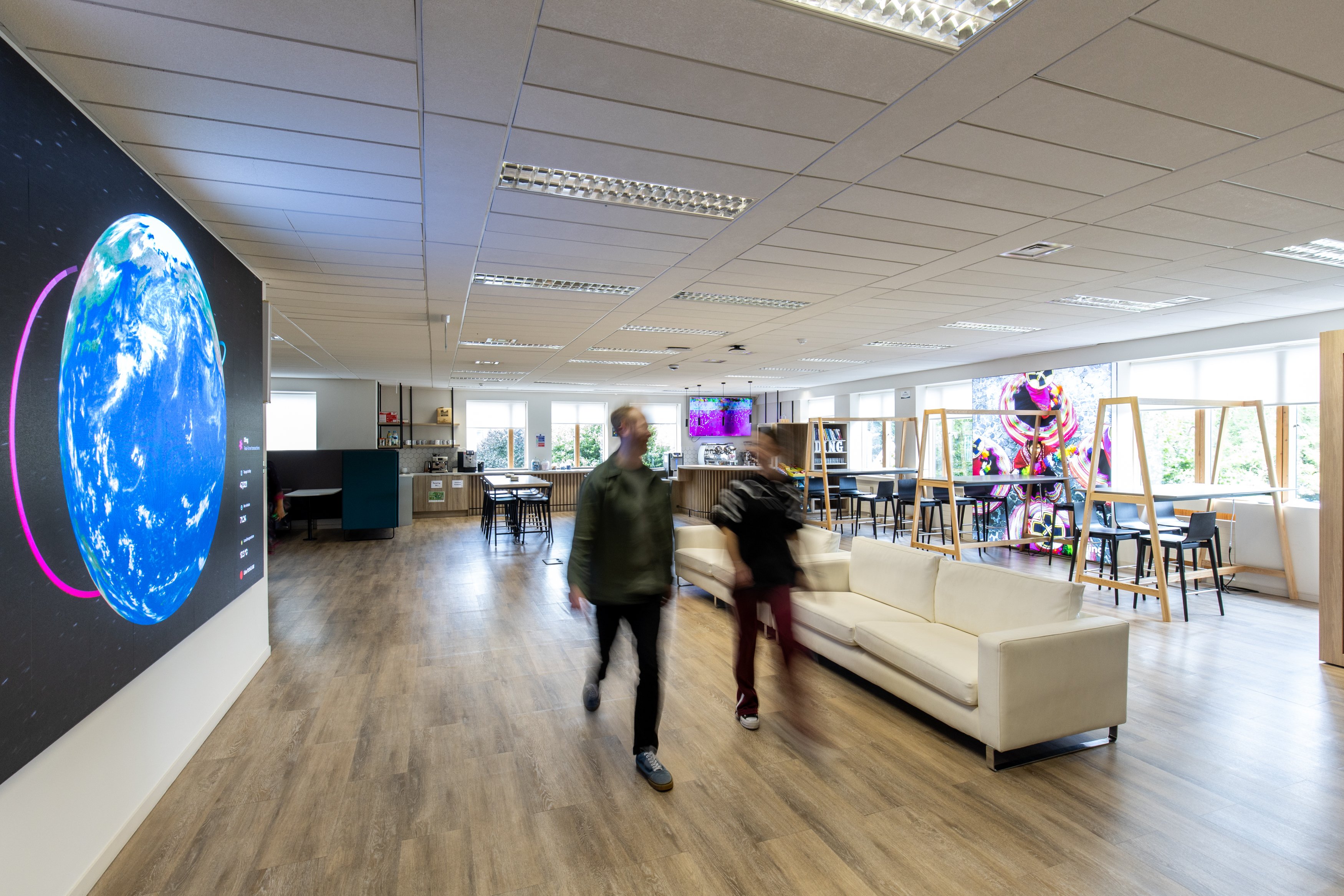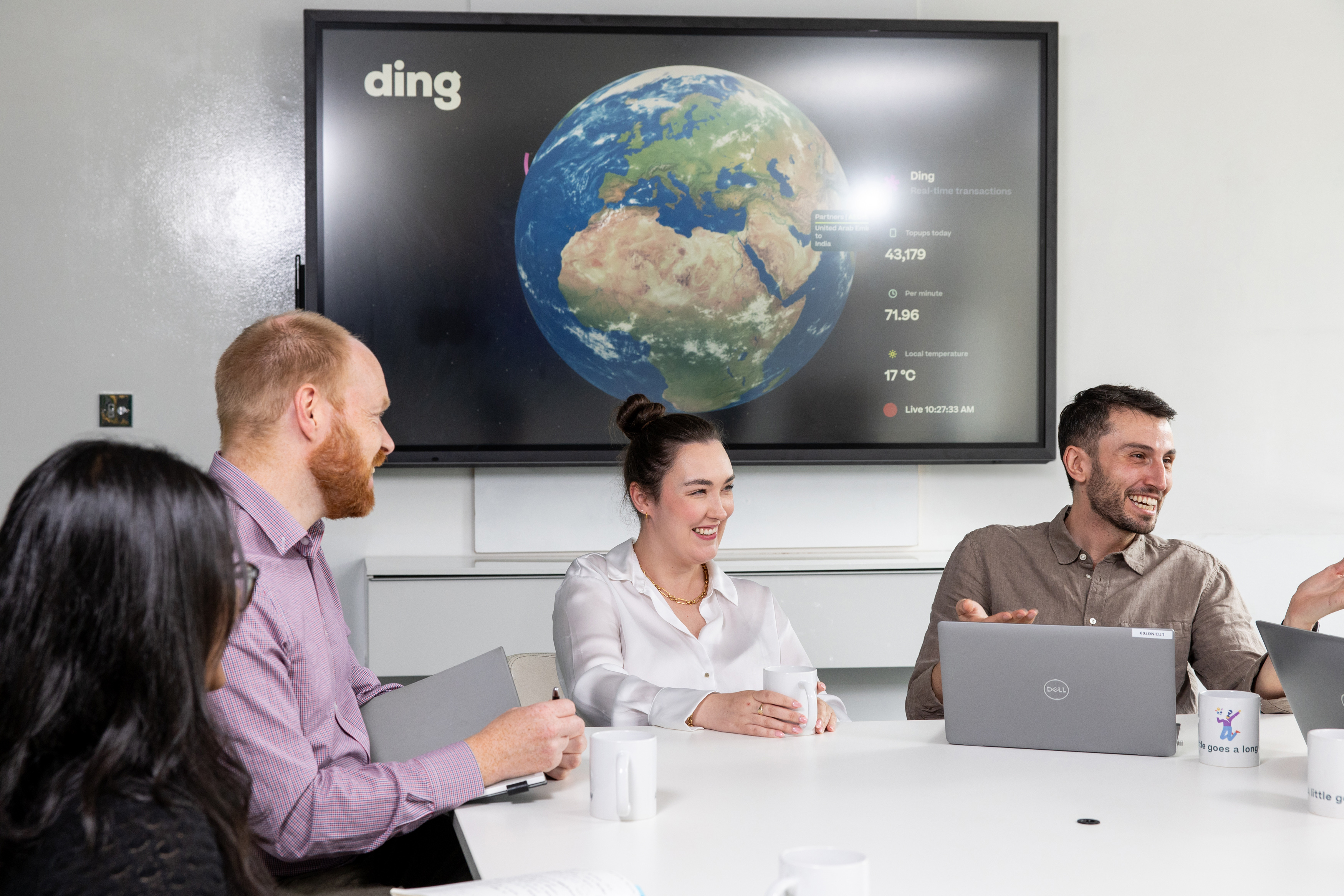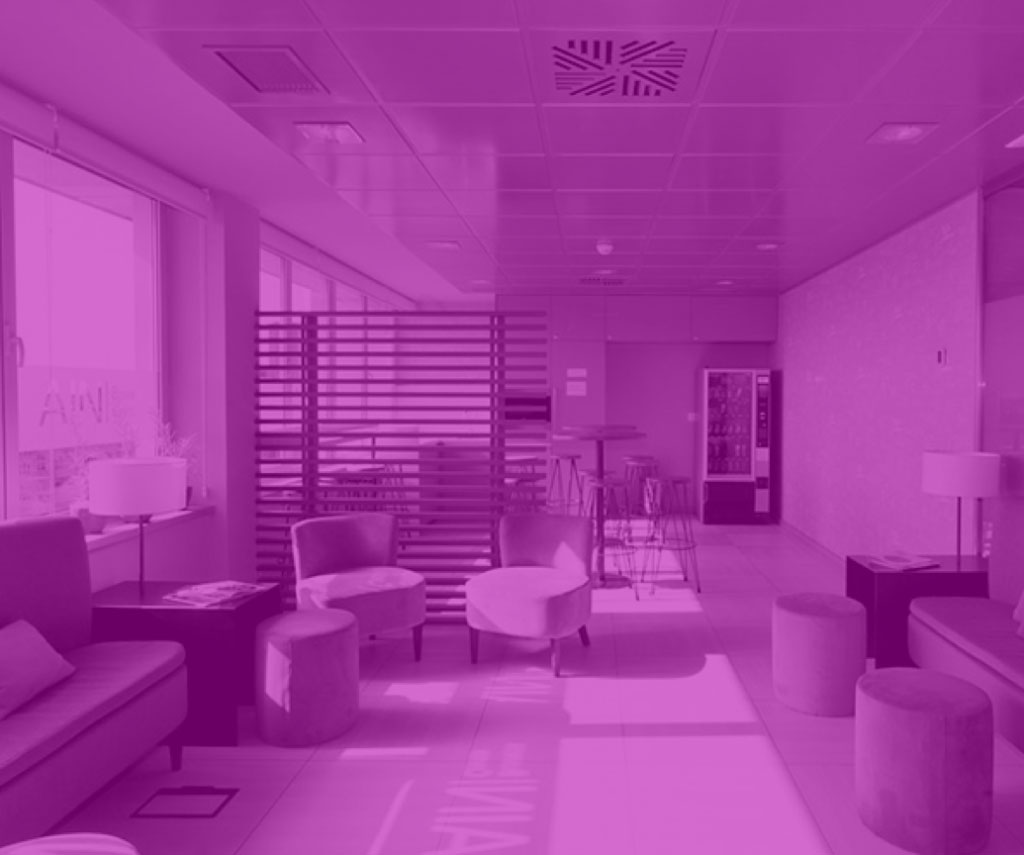
Grow your career with a global impact
Help change the world, one Ding at a time
Who We Are
Ding is powered by a global collective of thinkers, builders, and doers of 25+ nationalities. Our strength lies in diversity – of thought, culture, and experience – united by a shared purpose: to power instant, human connection across the globe.
Leadership
Our board and senior management brings together expertise across technology services, software, venture-backed consumer industry businesses, product, sales, and marketing. See for yourself.

Roland Bryan
Chief Executive Officer

Pádraig Horgan
Chief Product & Technology Officer

Rosanne O’Connor
General Counsel

Paul Duffy
Chief Financial Officer

Matt Leonard
Chief Commercial Officer

Tom Burke
Chief Marketing Officer
Mission
Ding was founded to improve people’s lives by helping those with less, gain access to more
Why We Are Here
Ding exists to make life simpler and more connected – enabling people to support one another, wherever they are in the world. We believe in technology that’s human-centered and impactful. Join us to help build a platform that empowers inclusion, resilience, and opportunity on a global scale.

Technology for Good
We are building the systems that power tens of millions of secure, real-time transactions every year. Using agile, test-driven development and over 1.3 million lines of active code, we're shaping the infrastructure of global digital generosity.

Our Values
We're here to make a difference
We're passionate about keeping people connected to loved ones and making their lives a little easier. We keep our customers front and centre of all we do. We put in the work to really know them and understand their needs. When they face difficulty, we are there to help.

We are thinkers, linkers and doers
We engage with the world around us and reflect on what events and trends mean for our customers and our work. We focus on what will have most impact and take ownership to see things through and get results. We think about the bigger picture, connect the dots across the business and align our efforts.

We imagine boldly and build fast
Ding was born from seeing something that wasn't there - innovation is at our core. We're driven by curiosity and ambition and love to challenge conventions to make new things happen. We move fast on our best ideas and take smart risks, learning from setbacks to build better.

We win together
We help each other to be the best we can be and choose collaboration over competition. We show up without ego and have each other's backs. We celebrate our successes and overcome setbacks fast as a team. Together we are better, smarter, faster and more resilient.

Life at Ding
Join a culture where we back your ideas, celebrate your wins and help you grow – no egos, just impact.
Ding is a place for the curious, the ambitious and the entrepreneurial – where you are not just a cog in the machine, but a voice in the room making a difference.
After all, Making a difference is in our DNA – our people look at the world and think: "How can we change this for the better?"
Our Culture
We believe in a high-performance, high-support environment – one where you're encouraged to take ownership, try new things, and learn fast. At Ding:
- •We push boundaries, but we do it together.
- •We celebrate individual wins and team achievements equally.
- •We want you to succeed – because your success fuels ours.
- •We keep egos out of the equation and focus on what's best for the mission.
"Ding is the first place I've worked where people genuinely root for you – not just in your role, but in your career."
Why Work With Us
Discover what makes our workplace special and why talented people choose to build their careers here
Global impact, human scale
Our work connects millions of people worldwide and makes a real difference in their lives — yet within our teams, you’ll still find the close-knit feel of working side by side on projects that truly matter.
Room to grow
We’re committed to continuous development and career growth through mentorship programs, skill-building initiatives and on-the-job learning. Whether you’re looking to deepen your expertise or explore a new path, at Ding, you’ll have real responsibility from day one- helping to shape projects, products, and even strategy.
A truly global team
Ding is a highly diverse and inclusive team of 200+ employees across continents, cultures, and languages. We love the different perspectives this brings and, above all that we are united by a shared mission.
Flexibility and Connection
At Ding, we want you to enjoy your work and perform at your best. Our hybrid model blends office and remote working, giving you the flexibility to balance life outside of work while still fostering collaboration, growth, and connection.
What Our Team Says
Hear from the people who make our company great
I believed in Ding's mission: helping people stay connected with loved ones.
My role at Ding is about helping people find us on Google - making sure we're there for the right people, at the right time, wherever they want to send top-up. Managing Paid Search is a balance of strategy, data analysis, and creativity. Unlike most advertisers who focus on one market, at Ding we work in hundreds! I was drawn to this international scope, where my work is shaped by events across countries and cultures. Most importantly, I believed in Ding's mission: helping people stay connected with loved ones.
— Elody
Paid Search Manager

As an immigrant myself, I know how important it is to stay connected.
Ding helps people stay connected with loved ones by making it easy to send mobile top-ups, gift vouchers, and other forms of value instantly. My role is about improving that experience, removing pain points, anticipating needs, and ensuring the product is intuitive, rewarding, and trustworthy. What really drew me to Ding was its mission. As an immigrant myself, I know how important it is to stay connected - sending value home isn't just transactional, it's emotional. I'm especially proud of leading the Ding Rewards Club, a loyalty program that celebrates our users for choosing us.
— Tosin
Senior Product Manager

What I enjoy most is working with talented, passionate colleagues from so many different backgrounds.
As a Customer Success Supervisor at Ding, my role is to ensure customers have the best possible experience. I support and guide my team so they can provide great service, resolve issues quickly, and keep people connected with their loved ones. What first drew me to Ding was its mission. The idea that my work could directly help families and friends stay in touch across the globe really inspired me. I was also excited by the international and supportive culture, which made me eager to be part of the team. What I enjoy most is working with talented, passionate colleagues from so many different backgrounds. A proud moment for me was being promoted to Customer Success Supervisor, as it showed my work was valued and gave me the chance to make an even bigger impact.
— Saroar
Customer Success Supervisor

Ding is truly collaborative, with the freedom to create, experiment, and learn from mistakes.
I joined Ding as an Intern in 2018. At Ding, what first attracted me was the people. From my very first day, the buzz in the office was contagious: lively discussions, laughs at the coffee bar, and a real energy around building something impactful. Ding is truly collaborative, with the freedom to create, experiment, and learn from mistakes. That freedom gives you ownership to shape your career in ways I've never experienced before. Now I lead the QA team. We advocate for quality customer experiences, making sure our services are seamless and fast. One of my proudest moments at Ding was leading a partnership with a major social media platform to create a native top-up experience. Working with a 'dream team' of colleagues, we built something fun, creative, and completely fresh. I learned the value of swift decisions, trust, and enjoying the process - lessons that have stayed with me ever since.
— Cathy
Head of Quality Assurance

There’s always something new to learn.
I lead Ding's Strategic Insights team, where our role is to turn complex information and data into clear and actionable insights that help people across the business make stronger data-led decisions. I first joined Ding in 2019 as an Intern, attracted by the story of a successful Irish-founded fintech business. It was the live map of global transactions I saw on the wall during my interview that sealed it though—seeing the scale of customers we serve across thousands of international corridors was incredible, and I knew I had to join. What I enjoy most about my work here is that there's always something new to learn; even though Ding is nearly 20 years old, it still feels like a start-up, full of variety, fresh ideas, and opportunities to make an impact. I am especially proud of how Ding responds during difficult times for the communities we serve; after the earthquake in Haiti in 2021, for example, we quickly waived all fees to help families stay connected with their loved ones when it mattered most, a reminder of how meaningful our work can be.
— Luke
Head of Strategic Insights

Our Global Offices
We're building the future from offices around the world, each with its own unique culture and opportunities

Bucharest
Romania

Dublin
Ireland

Dhaka
Bangladesh

Dubai
UAE
Live from Ding
Stay connected with our latest updates, behind-the-scenes moments, and team highlights.
Follow us on LinkedIn
Get the latest updates from our team
Open Roles
Discover the opportunities that await you at Ding.
Junior Accounts Analyst
Accounts Analyst
Junior HR Generalist (Maternity Cover)
Marketing Executive (Influencer/Ambassador)
Commercial Strategy Graduate Programme
Principal Android Engineer
Principal .Net Engineer
Principal iOS Engineer
Principal Web Engineer
QA Team Lead
Access for Good
We believe technology should be a force for good. Through Access for Good, we partner with organizations that share our mission of connecting communities and creating positive change around the world. Every time a customer sends top-up with Ding, 1 cent gets donated to our Access for Good fund. Our Access for Good fund helps charities around the world to provide life-changing help and empower communities across the globe. From supporting digital inclusion initiatives to partnering with charities that help families stay connected, we're committed to using our platform and expertise to make a meaningful difference.
From all of us at unconnected.org, our deepest thanks to Ding for their invaluable support. Together, we've connected students and women worldwide, unlocking boundless possibilities and shaping a more inclusive future. Daily, we witness the immense impact of our joint work, transforming lives and communities. Your partnership fuels our mission to bridge the digital divide. Together, we've made a profound impact. Thank you for standing with us.
— Mea Thompson
Co-Founder and CCO of unconnected.org